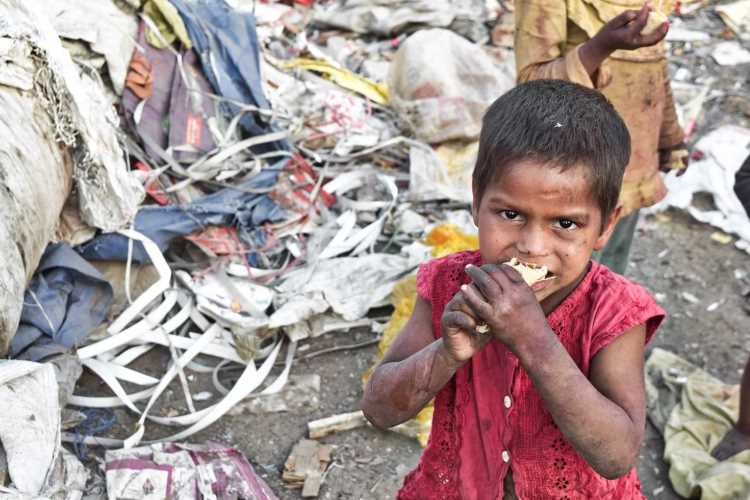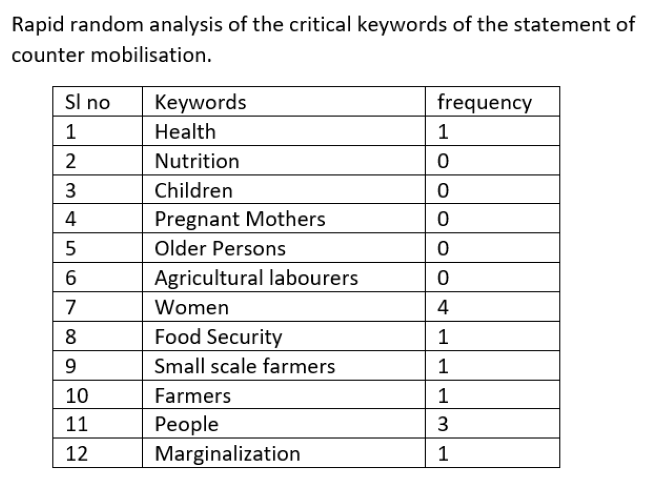
The UN Food Systems Summit was held on September 23. Over the last 18 months, 100,000 people participated in Summit dialogues. Around 100 million farmers from all parts of the world were engaged, 100,000 young people pledged to create change, and more than 2000 ideas for action were discussed. UN Secretary-General António Guterres convened the Food Systems Summit to raise awareness and to demand global commitments and actions that transform food systems to resolve hunger, reduce diet-related diseases, and heal the planet’. The Secretary-General called for collective action to radically change how we produce, process, and consume food.
Ensuring food diversity, food security, and food sovereignty are life and death for many. The dialogue and decisive actions are key to ensuring a sustainable food system for all. Keeping all stakeholders accountable is essential for this endeavour.
Many of the world’s food systems are fragile and did not fulfil the right to adequate food for all. As a result, hunger is on the rise again. Almost half of humanity, 3 billion people, cannot afford a healthy diet. In all its forms including obesity, malnutrition is deeply entrenched, leading to a broad range of adverse health, education, gender, and economic impacts. Drivers of food insecurity and malnutrition — including conflict, climate extremes, and economic volatility, are further exacerbated by poverty and high levels of inequality.
READ I Vibrant civil society key to achieving sustainable development goals
The COVID-19 pandemic put these worrying trends in overdrive. As a result, up to 811 million people worldwide faced hunger in 2020, a 20% increase in just one year. Over 41 million are on the doorstep of starvation. Inadequate food production alone does not cause hunger. Malnutrition and famine, instead, are caused by the political failures that restrict people’s access to adequate food. Furthermore, the lack of political acknowledgement on the right to food contributes to food insecurity.
The world’s food systems are fragile, and it is under enormous pressure. The climate crisis, biodiversity depletion and rural-urban migration contribute to food insecurity. The complexity of the crisis is enormous and multidimensional. It appears, even the Covid19 crisis has roots in food production and consumption policies
Understandably, the Summit has left many people disappointed, including some human rights experts. As a result, thousands have also organised their own people’s Summit and counter-mobilisation.
The agenda of the food summit
According to the organisers, the parallel counter-mobilisation was an effort to share small-scale food producers and workers’ realities and their visions for a human rights-based and agroecological transformation of food systems. They also wanted to highlight the importance of food sovereignty, small-scale sustainable agriculture, traditional knowledge, rights to natural resources, workers’ rights, Indigenous Peoples, women and future generations.
Even some civil society members called for “Make UN Food Summit Fail.” Nevertheless, they claim that ‘they have viable solutions to address the systemic problems in our food systems.’ They presented their demands as:
• No to corporate food systems. Yes, to food sovereignty.
• The necessity of rights-based approaches to combating the crisis.
• UNFSS 21 is an illegitimate multi-stakeholderism enabling corporate power.
• Food sovereignty for food system transformation.
Considering the vast body of knowledge and experience created by the UN Food Summit, counter mobilisation presents a shallow worldview. It is interesting to analyse what is missing from the political declaration of the Autonomous People’s Response to the UNFSS launched in September 2021. The three pages (about 950 words) presents a narrow analysis and worldview. It seems the so-called people’s counter mobilisation in effect is a mobilisation of few elites- accountable to none- taking over the real struggle and voices of marginalised and disfranchised populations.
READ I Foolproof PDS: A practical guide to food security
A rapid randomly selected keyword analysis of the political declaration presents the conceptual poverty of the alternative mobilisation. While they call for the ‘The necessity of rights-based approaches to address the food security crisis, they evoke a militaristic concept like ‘combating the crisis.’ The concept of ‘combat’ is against the fundamental right to Peace.
Further, any references about Nutrition, Children, Pregnant Mothers, Older Persons and Agricultural labourers are missing from their declaration. (Table 1. Presents a rapid random analysis of the critical keywords of the statement of counter mobilisation). They also failed to develop a critical public health perspective on the UN Food summit 21.

Highlights of UN Food Systems Summit 2021
The Summit was a virtual event during the UN General Assembly high-level week. Through this people’s Summit, the UN wanted to reaffirm its commitment to promote human rights for all and ensure everyone has the opportunity to participate. The event was open to all through its virtual platform. Food Systems Summit dialogues offered an opportunity for people everywhere to have a seat at the table at the Summit. The dialogue brought together a diversity of stakeholders. Nearly 300 commitments from civil society, farmers, youth and Indigenous Peoples and UN member states presented their commitment.
The global dialogue on food systems must continue with all its vigour. Many of the limitations and drawbacks of multilateralism are global civilisational challenges. There are very few global mechanisms, agencies and processes to address critical global challenges like peace, inequity, environmental crisis, refugees, large scale conflicts and pandemics like Covid-19.
Unfortunately, the counter mobilisations at the UN Food Systems Summit 2021 present a worldview promoting anarchy. The nations should not lose sight of the essential issues such as the global pandemic of junk food, the need for food sovereignty, the need for a rights-based approaches, and vigilance against the corporate power.
With all its limitations, the umbrella of multilateralism is the best way to deal with such critical global issues. Multilateralism and multilateral institutions must constantly be kept under the critical gaze and calls to reform. Multilateralism must not fail, and the alternative is not a global anarchist worldview.
References:
The Scientific Group for the UN Food systems Summit, Report of the Scientific Group Session at the Pre-Summit of the UNFSS: Science and Innovation for Food Systems Serving People and Planet. July 26, 2021
Joachim von Braun, Chair of the Scientific Group. Speech at the UN Food Systems Summit 2021. September 23, 2021
Agnes Kalibata, The Food Systems Summit: A New Deal for People, Planet and Prosperity
António Guterres (Secretary-General’s Chair Summary and Statement of Action on the UN Food Systems Summit. September 23, 2021.
Tambi, E.; Aromolaran, A.; Odularu, G; and Oyeleye, B., 2014. Food sovereignty and food security: Where does Africa stand? Forum for Agricultural Research in Africa (FARA), Accra, Ghana.
The political declaration of the Autonomous People’s Response to the UNFSS launched in September 2021.
UN Food Systems Summit Documents including Member State Statements.
Dr Joe Thomas is Global Public Health Chair at Sustainable Policy Solutions Foundation, a policy think tank based in New Delhi. He is also Professor of Public Health at Institute of Health and Management, Victoria, Australia. Opinions expressed in this article are personal.

